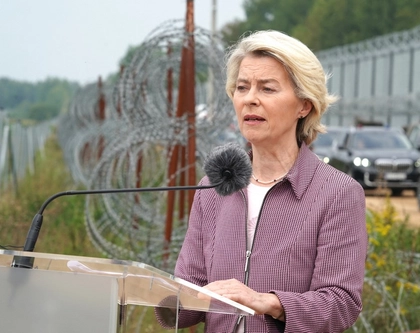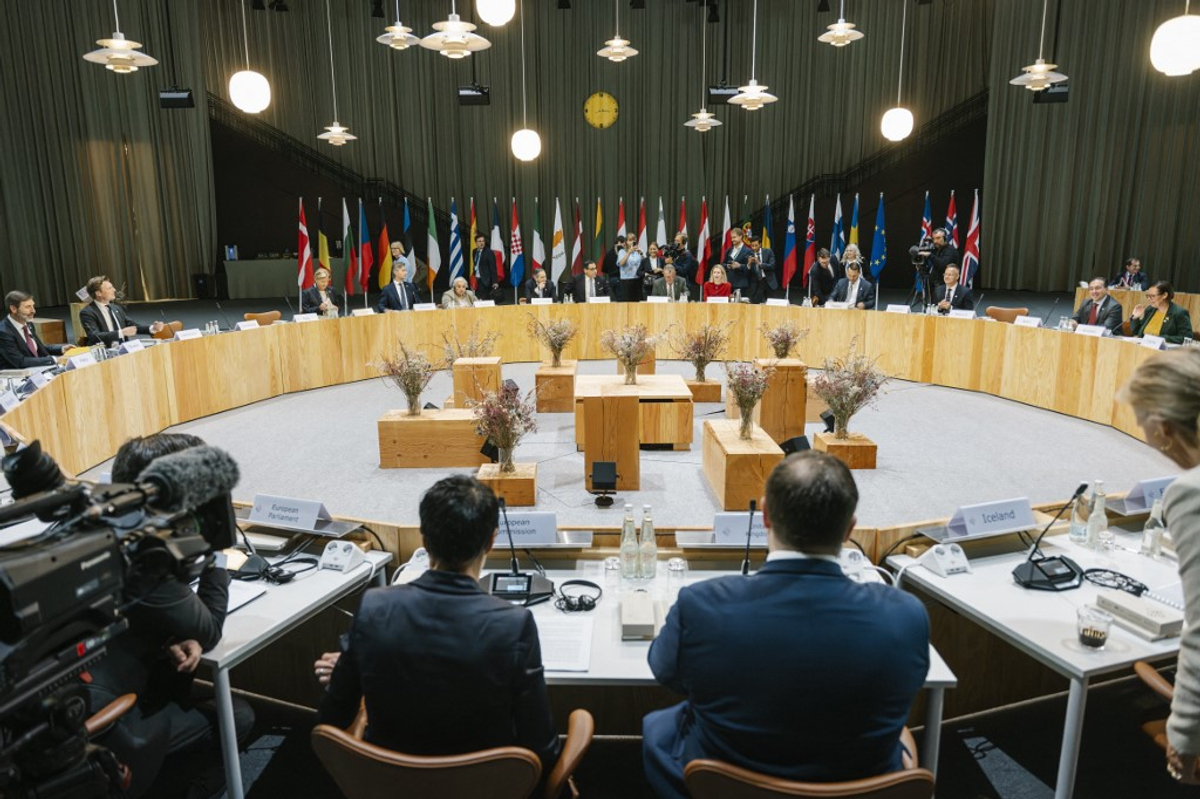The European Union will examine how to use frozen Russian assets to fund Ukraine’s defense and reconstruction after the war but confiscating them now is not politically realistic, EU foreign policy chief Kaja Kallas said on Saturday.
Some €210 billion euros of Russian assets are frozen in the bloc under sanctions imposed on Moscow for its invasion of Ukraine, according to the EU.
JOIN US ON TELEGRAM
Follow our coverage of the war on the @Kyivpost_official.
Ukraine and some EU countries, including Estonia, Lithuania and Poland, have said the assets should be seized now and used to support Kyiv. Those calls have intensified as Ukraine faces a funding gap of tens of billions of euros for next year alone.
But EU heavyweights France and Germany – along with Belgium, which holds most of the assets – have rebuffed the idea.
They have questioned the legality of such a move and its potential impact on the euro currency, while noting that profits from the assets are being used to support Ukraine.
Speaking after a meeting of EU foreign ministers in Copenhagen, Kallas said everyone had agreed it was “unthinkable that Russia will ever see this money again unless it fully compensates Ukraine” for damage caused by the war.
“We don’t see them paying for the damages. So we need to have an exit strategy” for using the assets whenever the war comes to an end, Kallas said.
No legal basis

Other Topics of Interest
Europe Has ‘Precise Plans’ to Deploy Troops to Ukraine During Ceasefire, EU Chief Says
EU drafts plans for a multinational force of tens of thousands to enforce a Ukraine ceasefire.
Italian Foreign Minister Antonio Tajani said without a solid legal basis, which currently does not exist, using the funds would amount to a political gift to Russian leader Vladimir Putin. The assets were frozen in response to Russia’s invasion of Ukraine.
“The overwhelming majority of states do not support the use of confiscated Russian assets because, as the European Central Bank has stated, there is no legal foundation that would allow their use,” said Tajani, who also serves as Italy’s deputy prime minister, as quoted by the Italian Ansa news agency.
“This is a choice that might make sense politically, but it carries the risk of backfiring. If there is no legal basis and a decision is taken against the law, then we are essentially handing Vladimir Putin a gift,” Tajani argued.
In his view, what is needed instead are new sanctions against Russia to force Putin toward peace.
Out of the question for now
Most of the assets are held in Euroclear, a securities depository in Belgium, whose foreign minister, Maxime Prévot, said any seizure was out of the question for now.
“Those assets are solidly protected under international law,” he told reporters in Copenhagen. “Confiscating them would trigger systemic financial instability and also erode trust in the euro.”
Prévot also rejected calls for a change in the investment strategy for the profits from the assets, with the aim of securing higher yields. He said that would be too risky, financially and legally.
Last year, the G7 group of nations – including the EU – agreed to use the profits generated by the assets to fund a $50 billion loan for Ukraine.
“Belgium and many other countries are not willing to discuss [taking the assets] now … but everybody agrees […] that Russia should pay for the damages, not our taxpayers,” Kallas said.
Russia has signalled it could agree to using the frozen assets for reconstruction in Ukraine but will insist that part of the money is spent on areas of the country that its forces control, sources told Reuters in February this year.
See the original here.

